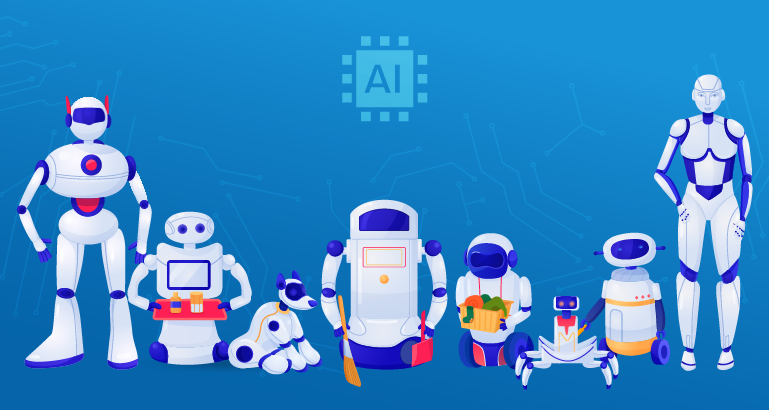An Observational Study
Comparing Leading AI Models for Clinical Text Processing
Traditional AI-based chatbots in the customer service sector are becoming outdated due to their limited capabilities, particularly in delivering hyper-personalization and human-like responses to customers.
The introduction of Gen AI-based LLMs is now essential for businesses aiming to stay competitive. From minimizing dependence on human resources to delivering hyper-personalized, human-like interactions, the transformative potential of Gen AI in customer service is truly remarkable.
As per IBM’s survey, 67% percent of the surveyed companies have already started adopting Gen AI in their customer services. Also, in the same report, 100% of surveyed companies understand the potential of Gen AI in customer service operations and thus are positive about introducing Gen AI in their current CI-powered setups as soon as possible.
Conversational Intelligence (CI) is an AI-driven communication technology that gathers and analyzes conversational data (speech or text) to enable natural, context-aware, and dynamic interactions with customers
In simpler terms, CI leverages built-in AI tools such as voice transcriptions, entity and intent recognition, and sentiment analysis to gain deeper insights into individual interactions, allowing for intelligent and tailored responses to customer inputs.
Generative AI adds foundation advancements to the traditional CI. It represents a fundamental shift in how machines understand and respond to human communication. This advancement is particularly transformative for the customer service sector. With CI, businesses can identify the "pain points" or "intent" behind a customer's query and use Gen AI to generate refined, context-aware responses based on customer input and sentiment in real time.
By handling complex interactions while minimizing the need for human intervention, CI is both cost-effective and time-efficient, poised to revolutionize the customer service industry. Let’s explore how advancements in CI will transform customer service by 2025.
How CI Differs from Traditional Chatbots or Rule-Based Systems
Traditional chatbots or rule-based systems operate based on a pre-defined set of rules, such as specific keyword triggers, and deliver pre-configured responses. They function more like FAQs, with limited scope and functionality.
Gen AI-powered CI addresses these limitations. CI is built with advanced Natural Language Processing (NLP), Natural Language Understanding (NLU), and Machine Learning (ML) models, enabling it to dynamically understand user queries and respond in a human-friendly manner. Unlike rigid, rule-based systems, CI delivers personalized, conversational interactions that feel natural and engaging.
When NLU algorithms are integrated with Gen AI at their core, they not only enhance language understanding but also represent a fundamental shift in how machines interpret and respond to human communication.
Traditional NLUs (a subset of NLP) rely on pre-trained models for:
- Intent Recognition: Identifying the user's goal (e.g., "I want to book a flight").
- Entity Recognition: Extracting relevant details (e.g., "Paris" as the destination).
- Context Awareness: Maintaining conversation history for coherent responses.
- Sentiment Analysis: Detecting user emotions (positive, negative, neutral).
However, Gen AI dynamically learns and adapts NLU models in real time based on user input, enabling human-like conversations. This represents a significant leap forward in how traditional CI operates.
Additionally, unlike traditional chatbots that rely solely on text or voice data, advanced CI powered by Gen AI integrates Multi-Modal Models. These models can process and interpret multiple types of data (e.g., text, voice, images, video, and sensory inputs) simultaneously. This allows for more meaningful decision-making, regardless of the complexity of the conversation.
- Text + Voice : An AI assistant understands spoken queries and provides voice or text responses.
- Text + Image: A customer uploads a product image, and the AI chatbot identifies and suggests related products.
- Voice + Sentiment: A support AI detects frustration in tone and escalates the issue to a human agent.
These advancements in CI technology enable it to handle complex, multi-turn conversations with ease.
Examples of CI in Action
To streamline communications, advanced CI (also referred to as Conversational AI) incorporates various tools, such as:
- AI-powered voice assistants like Siri and Alexa, which answer questions, control devices, and assist users.
- Advanced chatbots that streamline customer service interactions at scale with low operational costs.
- Virtual agents that handle complex queries and perform tasks like summarizing meetings, auto-responding to emails, and more.
CI Use Cases in Various Sectors
Virtually any customer-facing business can implement CI to enhance customer satisfaction. Here are some sectors where CI is making a significant impact:
E-commerce
In the e-commerce sector, CI-driven virtual assistants are transforming how customers interact with online retailers by providing seamless support at every stage of the shopping journey. Whether a customer needs help with return policies, payment issues, or product availability, CI-powered bots analyze purchase history, browsing behavior, and user preferences to deliver accurate, context-aware responses without escalating to human agents.
Instead of generic product listings, shoppers receive highly personalized recommendations, boosting engagement and sales conversions.
- AI-Driven Personalized Shopping Experience
Advanced CI algorithms guide shoppers through product discovery and reviews based on their preferences, past purchases, and browsing behavior. Customers receive personalized recommendations driven by real-time data insights, enhancing their shopping experience. Conversion rates improve with features like product comparisons, customer reviews, and exclusive deals, all of which enhance engagement and decision-making. Gen AI assistants can also handle queries about product specifications, personalized size charts, feedback, and alternative options. - Order Processing & Payment Assistance
One of the key advantages of CI in e-commerce is its ability to drive conversions. AI assistants can proactively detect abandoned carts and re-engage customers with personalized discounts, reminders, or alternative product suggestions.
Additionally, CI streamlines payment processing by guiding users through payment failures, troubleshooting steps, and even facilitating in-chat payments. For example, Gen AI can verify card details, suggest alternate payment methods, or retry transactions.
Meta has already introduced this functionality with "WhatsApp Payments," promoting seamless payment experiences. - Post-purchase Support, Order Tracking, & Automated Returns
With CI, customers can receive real-time shipping updates and estimated delivery timelines without visiting the website's tracking page.
CI's sentiment analysis detects customer frustration in real time, triggering priority escalation to human representatives to prevent churn. Even in complex cases requiring human intervention, support teams receive a summarized view of the issue for quicker resolution.
AI-powered virtual assistants can also handle return requests, exchange processes, and refund status inquiries seamlessly. They can even offer customized retention offers, such as store credits, product replacements, or troubleshooting assistance, to reduce unnecessary returns.
Healthcare
The healthcare sector stands to benefit significantly from conversational intelligence. Personalized assistance is critical in healthcare, and CI delivers this through AI-integrated tools tailored to patients' medical histories.
- Appointment Management & Scheduling
Conversational AI excels at helping patients schedule appointments, receive medication reminders, and even perform quick self-diagnoses. It syncs with doctors' schedules to provide dynamic and accurate assistance.
AI-driven reminders reduce no-show rates, decrease waiting times, and improve hospital operational efficiency. Additionally, CI can assist with insurance verification and pre-appointment paperwork, streamlining the check-in process. - Medication Adherence & Post-Treatment Follow-Ups
Automated personalized medication reminders ensure patients adhere to their prescribed dosage schedules.
CI-powered assistants can follow up with patients post-treatment, inquiring about recovery progress, side effects, or complications to determine if further medical intervention is needed. - Virtual Symptom Checking & Preliminary Diagnosis
AI-powered virtual assistants can diagnose patients through symptom-based self-assessment questionnaires, evaluating the severity of their condition.
Based on symptoms, Gen AI can suggest home remedies, recommend lifestyle changes, or prompt patients to seek immediate medical attention. This is particularly valuable in emergencies, where CI can identify critical cases (e.g., "chest pain" or "difficulty breathing") and recommend urgent care.
Advanced AI models analyze past medical history, allergies, and risk factors to provide context-aware recommendations. - Mental Health Assistance
CI has significant potential in mental health support. For individuals experiencing anxiety or distress, Gen AI assistants can offer human-like personalized responses, coping strategies, and therapeutic techniques for quick relief.
Banking
In the banking and finance sector, tasks like loan eligibility checks, credit score evaluations, personalized offers, and process guidelines can be automated using AI-powered assistants. These tools deliver personalized experiences based on customers' financial data, reducing wait times and minimizing the need for human interaction.
A prime example is Erica (Bank of America), an AI-driven financial assistant that automates routine tasks such as balance inquiries, transactions, spending insights, and fraud detection.
Here are some specific use cases for CI in banking:
- Virtual Financial Assistants CI assistants can provide budgeting advice, savings plans, and investment suggestions tailored to customers' financial goals and spending patterns.
Many banking processes can be automated with CI, including:
- Loan application processes,
- Credit score evaluations,
- Eligibility assessments,
- Compliance with lending laws,
- Real-time account balance insights,
- Transaction history tracking,
- Spending analytics.
AI-powered chatbots can handle routine inquiries like account updates, fund transfers, and loan repayment schedules without human intervention.
For transaction tracking, Gen AI provides real-time insights into account balances, transaction history, and spending analytics, enabling customers to manage their finances effortlessly.
- CI-powered Governance in Banking
One of the most advantageous capabilities of CI in banking is its ability to simplify complex processes. With limited legal understanding and intricate banking procedures, human intervention is often necessary. However, CI trained on financial data allows customers to check loan eligibility, apply for credit cards, and track approvals via AI chatbots integrated with backend systems.
Gen AI can analyze credit scores and spending behavior to offer customized financial services (e.g., "Based on your income, you qualify for a 3% interest loan").
It can also monitor transaction patterns to detect anomalies and prevent fraud (e.g., flagging unusual overseas transactions). Guidance on handling unauthorized activities, such as card blocking, password resets, and two-factor authentication, further enhances security.
Other use cases include AI-driven mortgage assistants that help customers calculate home loan eligibility, monthly installments, and interest rates, streamlining decision-making. - Hyper-Personalized Banking & Financial Advisory
AI-powered assistants can provide tailored credit card and loan offers based on customers' financial profiles and banking history. With Conversational AI, customers can receive investment opportunities, stock insights, and market trends aligned with their risk tolerance and interests.
The Growing Importance of CI & Customer Experience (CX)
Customer experience (CX) is a key differentiator in today's hyper-competitive market. Modern consumers expect quick, personalized, and seamless interactions. Businesses that invest in CI can benefit in the following ways:
1. 24/7 Availability
Traditional chatbots often require human intervention, leading to long wait times and customer frustration. CI-driven AI solutions reduce this dependency by acting as a middle layer between customers and human agents. This ensures round-the-clock support with a human-friendly tone, reducing frustration and boosting satisfaction.
2. Personalization
Unlike generic responses, CI models can be customized based on customer data, previous interactions, and preferences to deliver personalized recommendations and solutions. With Gen AI, customers receive real-time responses in a tone that resonates with them. The fine-tuned language model pulls information from company documentation, FAQs, and past interactions to provide accurate, real-time responses, eliminating the need for manual searches.
Conversational AI also supports multilingual interactions, breaking down language barriers and reducing the need for human translators.
3. Efficiency
Quick and human-friendly responses are crucial for a positive customer experience. CI reduces wait times and speeds up issue resolution by automating even complex interactions.
4. Scalability
As businesses grow, so does customer demand. Scaling traditional customer support teams is costly and resource-intensive. CI solutions, however, can handle high volumes of queries without additional human resources, making them cost-effective and efficient.
With minimal scalability infrastructure costs, CI models can:
- Manage increased customer queries without additional staffing.
- Provide consistent and accurate responses, maintaining high service quality.
- Reduce operational costs while improving customer satisfaction.
5. Sentiment Analysis
CI analyzes customer tone and emotions to deliver empathetic and appropriate responses, enhancing satisfaction and retention. Advanced Natural Language Interaction (NLI) and Natural Language Understanding (NLU) algorithms ensure accurate sentiment analysis.
Challenges and Considerations
While CI is revolutionizing customer service, businesses must address emerging concerns to ensure reliable, secure, and bias-free interactions.
1. Data Privacy & Security
NLP models used in CI are trained on large datasets containing personal and sensitive information. During live interactions, customer data is fetched and analyzed in real time to generate responses. To protect this data, businesses must implement end-to-end encryption and anonymization.
Clear data governance policies are essential to manage and store user interactions responsibly.
2. Accuracy & Bias Handling
AI-driven systems can inadvertently develop biases based on their training data. To ensure fair and accurate interactions, businesses should:
- Regularly audit AI responses to detect and correct biases
- Train models on diverse, high-quality datasets to ensure inclusivity.
- Implement human oversight to address AI-driven misinterpretations.
3. AI Advancements & Continuous Training
As customer service needs evolve, AI models require ongoing training to remain effective. Without continuous learning, CI models risk becoming outdated, leading to inaccurate or ineffective responses.
To stay relevant, companies must:
- Regularly update AI models with new customer data and emerging trends.
- Monitor and fine-tune algorithms to enhance accuracy and efficiency.
- Adapt AI responses based on real-time user feedback.
Conversational Intelligence is transforming the customer service sector, enabling businesses across industries to automate interactions, enhance personalization, and improve operational efficiency. In today's competitive landscape, CI is essential for scaling operations and delivering exceptional customer satisfaction.
Interested in developing an advanced, customized Gen AI solution for your business?
At Nu10, we create scalable and cost-effective Gen AI models with advanced NLP algorithms tailored to your specific needs.
Our AI solutions offer:
- Multi-channel integration
- Advanced algorithms aligned with the latest tech trends
- Expertise in analyzing text and voice interactions
- Enterprise-grade security and compliance
- Advanced data analytics for data-driven decisions
Connect with us today and request a free demo!
About Author
Dr. Phaneender Aedla
Dr. Phaneender Aedla has over 24 years of experience in handling and managing petabyte-scale data systems. He blends deep technical acumen with strategic vision, and aims to drive intelligent, sustainable innovation through co-creative partnerships that unlock true business value.








